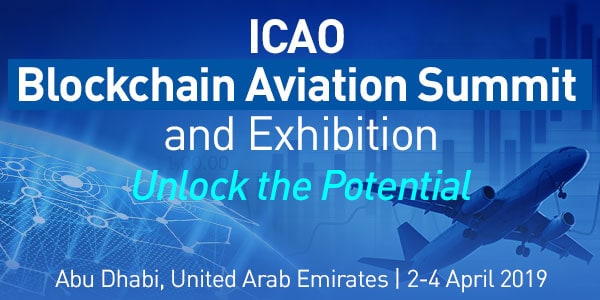Though many people are familiar with bitcoin or the term cryptocurrency, few people understand the full concept of blockchain. Blockchain is a publicly available and decentralized digital ledger that encrypts data into blocks of records which allow for a reliable and permanent method of storing data.
Blockchain is not easily tampered with because the “blocks”, which are bundles of data, are attached to pre- and post-transactions. This innovative way of record keeping is known to be used for currencies, loyalty programmes, bookkeeping and auditing. Blockchain also has significant potential in the aviation industry.
While the aviation industry is working with many innovative and advanced technologies that will continue to grow, there are practices within the industry that are old-fashioned and unreliable. For example, pilots log their flight time by pen and paper or through digital spreadsheets. These logbooks have no security against the authenticity of hours which can lead to undependable pilot hours.
 Blockchain can provide a reliable method of storing data and performing transactions in order to ensure that data cannot be falsified. This concept can also be applied to many other aspects of aviation such as aircraft maintenance, passenger records and financial transactions. As such, blockchain can provide a safe and secure way for processing and using various permanent digital records that aviation requires.
Blockchain can provide a reliable method of storing data and performing transactions in order to ensure that data cannot be falsified. This concept can also be applied to many other aspects of aviation such as aircraft maintenance, passenger records and financial transactions. As such, blockchain can provide a safe and secure way for processing and using various permanent digital records that aviation requires.
The following examples highlight some key ways that blockchain can be used in aviation:
Security and Identity
The protection of passenger records, flight manifests and crew information is highly important in aviation. The use of blockchain for these data sources would enable the management and sharing of information across various entities without jeopardizing their security.
Electronic Personnel Licensing
Since characteristics of blockchain cannot be changed or tampered with, the authenticity of pilot and maintenance logging can become and remain accurate. Blockchain will eliminate the possibility of falsifying records and can enable a universal system of logging personnel and aircraft licensing data across States. This will allow regulatory authorities to verify whether the credentials of aircraft and pilots are current, which will in turn, contribute to the overall safety of aviation.
Air Freight
Every shipment of freight requires a large amount of paperwork which is costly and inefficient. The ability to digitalize this paperwork with blockchain will allow for an environmentally friendly solution. It will also reduce transport time by eliminating the need to verify paper copies and by significantly shortening the administrative process. Consolidating air freight records will create an interconnected network of air cargo information which will facilitate data sharing and eliminate fraud.
Regulatory Authorities
Implementing blockchain as a standard in aviation will improve the ability of civil aviation authorities and States to track specific goals and to ensure that operators and service providers comply with regulations and standards. Once the use of blockchain for electronic personnel licensing becomes a standard, it will give regulatory authorities the ability to verify the authenticity of pilots and aircraft through reliable and transparent record keeping.
Ticketing and Loyalty Programmes
Using blockchain for e-tickets will allow airlines to enhance their alliances by enabling tickets to be sold by their partners in real time. Loyalty programmes can be strengthened with blockchain as travelers can attain instant value from their points and use them like a currency. Since blockchain is publicly available, loyalty points can be used by any partner connected to the loyalty programme network.
Financial Transactions
Many aspects of aviation require financial transactions such as purchasing parts, leasing aircraft and airline costs associated with flight operations. Blockchain can standardize these processes and properly secure the transactions in a timely manner.
Airlines and aviation startups are beginning to exploit the potential of the blockchain technology, demonstrating that the wider use and implementation of blockchain in aviation is near. Blockchain has the potential to evolve the aviation industry and allow airlines, civil aviation authorities, international organizations and other key players to unlock the full potential of data and information available to them.
To learn more about blockchain in the aviation industry, you can attend the ICAO Blockchain Aviation Summit and Exhibition that will be held in the United Arab Emirates from 2-4 April 2019. The Summit includes a one-day workshop and two days of presentations. It provides an opportunity for aviation professionals to get more information about the key uses of blockchain in the aviation industry and to expand their ability to use the blockchain technology in a productive and innovative manner.
